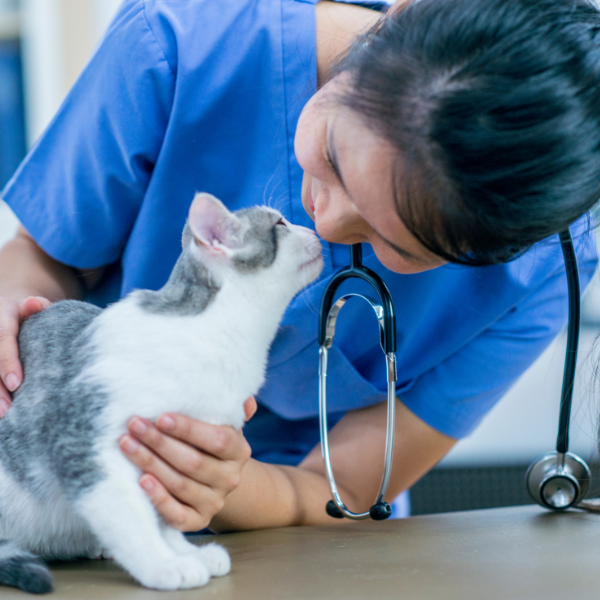Are you considering a career as a veterinary nurse? If you’ve ever wondered “what does a vet nurse do?”, you’re in the right place. It’s a fast-paced, rewarding profession that allows you to make a real difference in the lives of animals and their owners. From early morning patient check-ins to assisting in surgeries, no two days are ever the same. Let’s take a closer look at the dedication, skill, and compassion that veterinary nurses bring to their work every day.
Morning Routine: Getting Ready for the Day
The day often begins early, with nurses arriving before the clinic opens to ensure everything is set up for the day ahead. This might include checking in hospitalised patients, administering morning medications, and reviewing the day’s surgical and consultation schedule.
Once patients start arriving, vet nurses assist with consultations by taking patient histories, weighing animals, and ensuring they are comfortable before seeing the veterinarian. Whether it’s a nervous puppy’s first visit or a senior pet coming in for a routine check-up, the nurse’s calm and reassuring presence helps put both pets and their owners at ease.
Mid-Morning: Assisting in Surgery and Treatments
As the morning progresses, the surgical suite becomes a hub of activity. Vet nurses play a crucial role in preparing for surgeries, from setting up sterile equipment to monitoring anaesthesia and assisting the veterinarian during procedures. Their keen eye for detail and extensive training in patient monitoring ensure that every pet receives the best possible care while under anaesthesia.
Between surgeries, nurses may also be involved in treating hospitalised patients. This can include wound care, physiotherapy, administering IV fluids, or monitoring a pet’s recovery post-surgery. Their hands-on care and medical expertise are essential in ensuring pets are comfortable and healing properly.
Afternoon: Client Communication and Patient Care
A large part of what a vet nurse does involves client communication and education. Veterinary nurses spend a lot of time discussing treatment plans with pet owners, demonstrating medication administration, and answering questions about ongoing care. They provide valuable support to clients, ensuring they feel confident in caring for their pets at home.
Patient discharges are another key part of the afternoon routine. Whether it’s a pet going home after surgery or a patient recovering from illness, nurses go through detailed post-care instructions with owners, ensuring they understand what to expect and when to follow up.
Evening: Wrapping Up the Day
As the clinic nears closing time, veterinary nurses focus on tidying treatment areas, restocking supplies, and final patient checks. This includes ensuring hospitalised patients are comfortable for the night and that all medications have been administered.
Even at the end of a long shift, the dedication of a veterinary nurse never wavers. Their passion for animal care extends beyond their working hours, and many continue to advocate for their patients’ well-being long after they leave the clinic.
Is Veterinary Nursing Right for You?
If you’ve been asking, “what does a vet nurse do?”, the answer is—so much more than you might expect! Veterinary nurses juggle multiple roles, from medical caretakers and surgical assistants to educators and emotional support for pet owners. It’s a career that demands resilience, skill, and a deep love for animals. While the work is challenging, the reward of seeing a once-sick pet wagging its tail or a grateful owner’s smile makes it all worthwhile.
If you love animals, enjoy working in a team, and thrive in a dynamic environment, veterinary nursing could be the perfect career path for you. Consider exploring veterinary nursing courses, speaking to experienced professionals, or gaining hands-on experience in a clinic to see if this path aligns with your passion.
Your journey to becoming a veterinary nurse starts with a single step—are you ready to take it? Explore our Certificate II in Animal Studies or contact us to find out more to start your career today!

